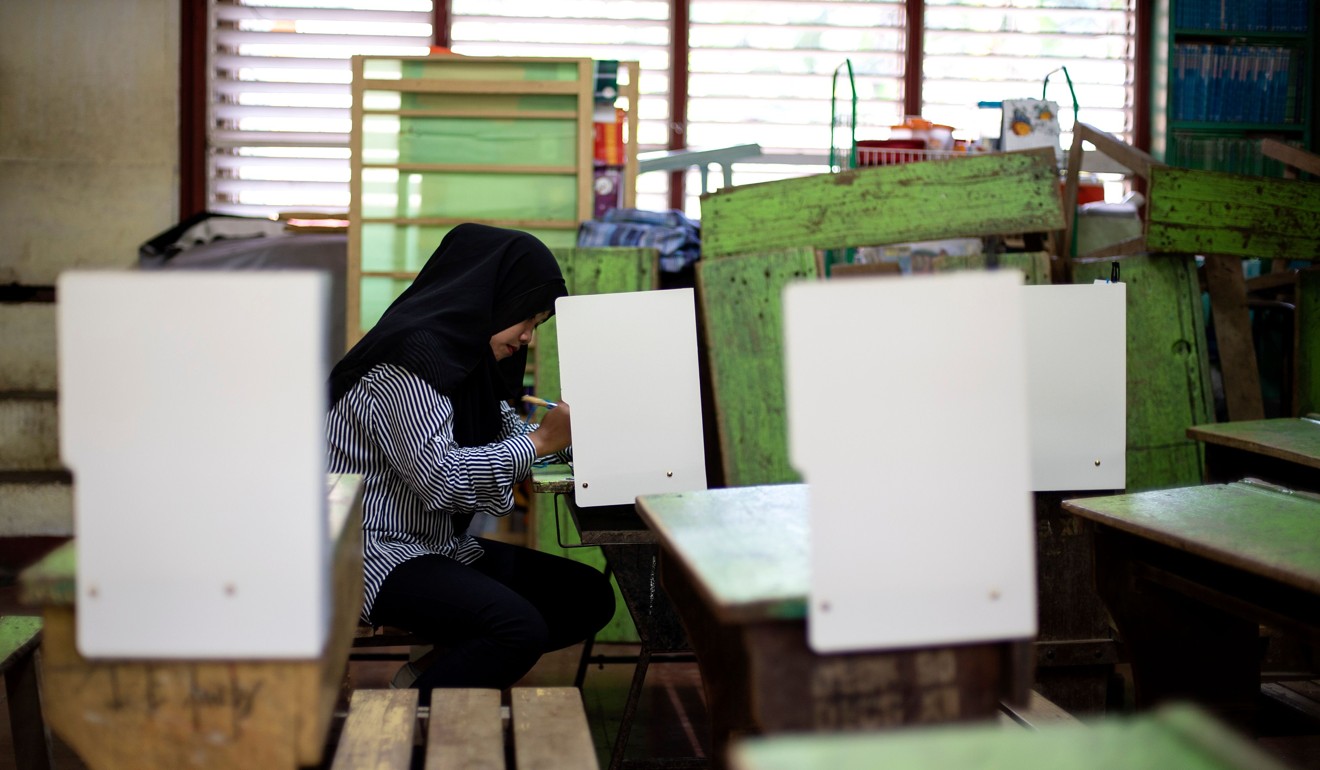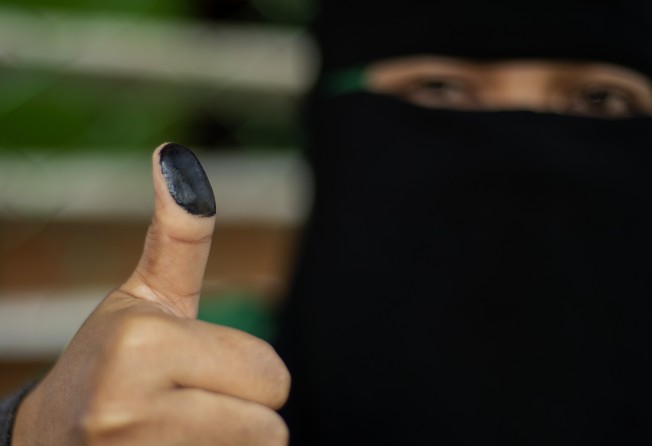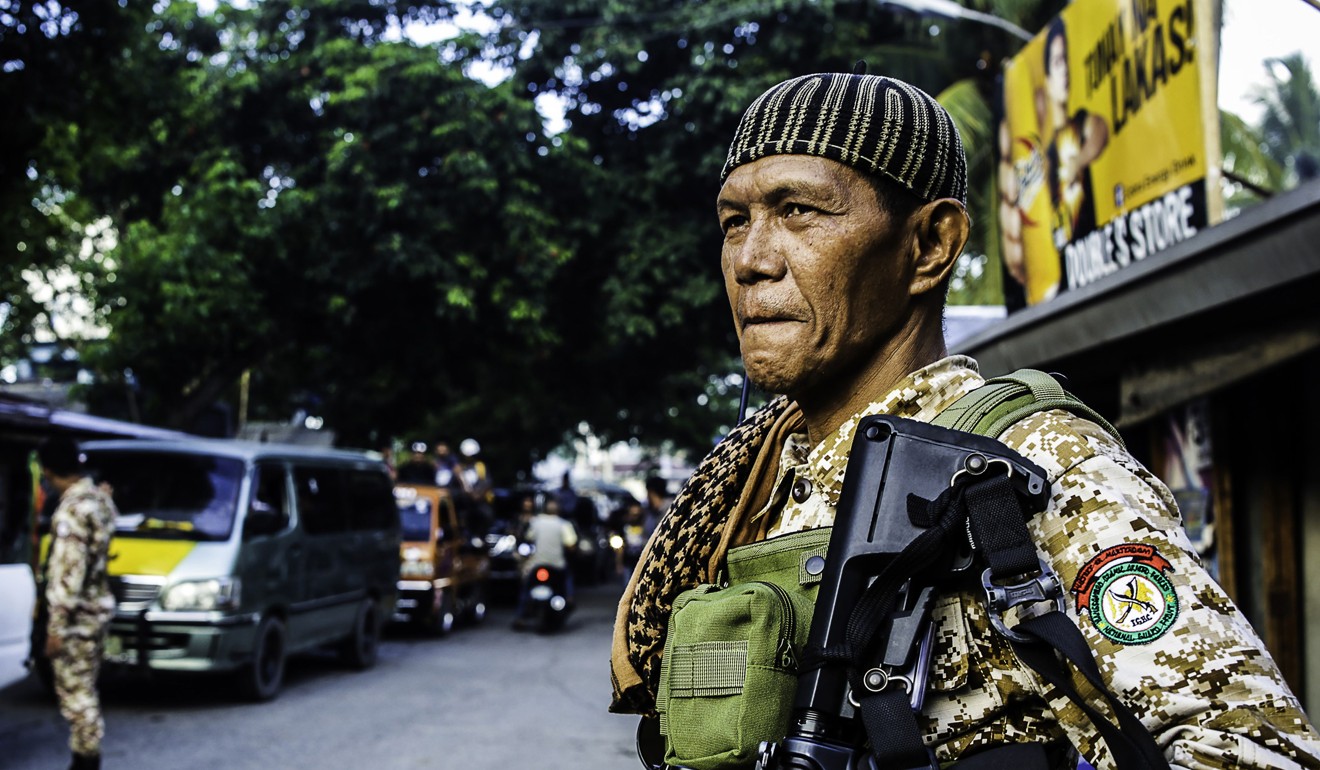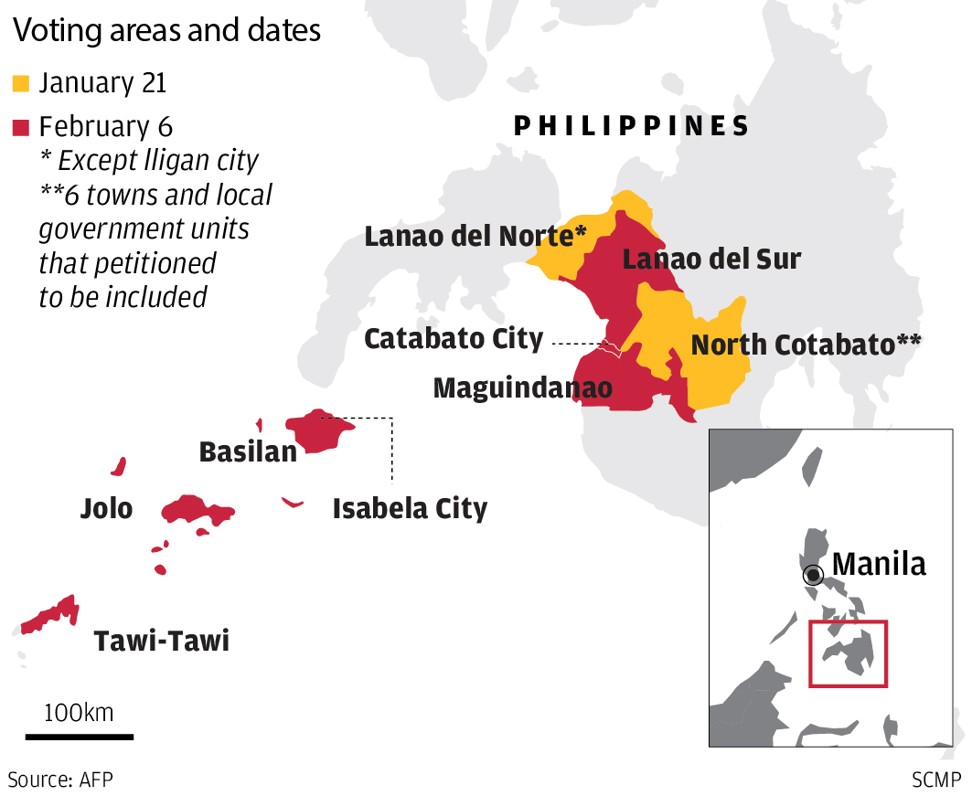
Bangsamoro autonomy vote in southern Philippines proves peaceful, apart from a grenade
- President Rodrigo Duterte’s administration hopes that granting greater autonomy to the region can end a violent, decades-long separatist movement

Fears that the first stage of a landmark referendum on greater autonomy for the Philippines’ restive Muslim-majority south would be derailed by violence on Monday failed to materialise, soothing nerves within the administration of President Rodrigo Duterte as it works to end one of Asia’s longest-running separatist conflicts.
There were sporadic reports of confrontations in urban areas with a mixed Christian and Muslim population such as Cotabato City, where a grenade was thrown into a voting centre as polls opened.

The explosive failed to detonate, however, and officials said soon after polling stations closed at 3pm local time that the vote had been otherwise peaceful.
Some 2.8 million people who live in the Autonomous Region in Muslim Mindanao, in the Philippines’ far southwest, are being asked whether they accept the formation of a new, expanded region called Bangsamoro (Moro nation) with its own parliament and a guaranteed 5 per cent grant of national internal revenue.
Security and policing would remain in the hands of Duterte’s government in Manila, however.
The Moro – a word that was used by Spanish colonialists to refer to Muslim people in the Philippines – consider Mindanao their ancestral homeland.
Observers expect the referendum to be approved by a resounding majority, though the final results for Monday’s vote are not likely to be announced until Friday. If successful, a second stage of voting will then be held in the areas affected by the proposed change that have yet to be polled.
Mujiv Hataman, who leads the region’s current administration, said he was hopeful for a positive outcome.
“This is not the end. Today, we continue to take steps towards the right direction in our journey to peace as we write a new chapter in our continuing narrative towards claiming our rights as people of the Bangsamoro,” he said.
Duterte’s administration has high hopes that granting greater autonomy to the region can put an end to separatist violence which has claimed more than 120,000 lives over the past five decades.
In a last ditch pitch on Friday in Cotabato City – Bangsamoro’s proposed capital – the president told voters that devolution was the best plan for peace, emphasising that it was forged with support from the Moro Islamic Liberation Front (MILF) rebel group.
“Let us use the plebiscite as a peaceful means to finally correct the historical injustice committed against the Bangsamoro people or the Moro people of Mindanao,” he said.
Duterte, who is a Christian native of Mindanao, signed the laws to establish Bangsamoro last year – despite widespread scepticism from the mainly Catholic nation’s political elite that it would become a breeding ground for extremists.
MILF, which claims about 40,000 active members, has pledged to lay down arms after the formation of Bangsamoro. But several splinter groups have pledged to forge ahead with a separatist struggle and have reportedly obtained help from foreign jihadist movements.
The whole of Mindanao island has been under martial law since the summer of 2017, after violent clashes broke out between Islamist militants and government forces.
COTABATO CITY ‘CRUCIAL’
Concerns have been raised that the legitimacy of the vote could be called into question following reports of vote buying, sporadic violence and other irregularities with the voting process.
In Cotabato City, where many of the region’s Christians live, some 20,000 soldiers and police officers were deployed for the vote in the wake of a bombing on New Year’s Eve that killed two people.
Earlier polling data had suggested that the city is not as enthusiastic about devolution as other parts of the proposed new region.
“The eye of the plebiscite is Cotabato City. It has become a bottom line for the ‘Yes’ vote,” said Ramon Casiple, executive director of the Institute for Political and Electoral Reform in Quezon City, northeast of Manila, who was in Cotabato for the vote.
“This is unfortunate because the real bottom line is the ratification of [autonomy]. Now, the credibility of the vote is on the line.”

At present, Cotabato City is self-governing and outside the jurisdiction of the Autonomous Region in Muslim Mindanao. If it decides against joining Bangsamoro then the proposed new region would be without its designated capital.
Casiple said that those areas that have a Muslim majority and are already semi-autonomous are more likely to vote in favour of further devolution.
On Monday there were reports of “Yes” supporters clad in green shirts surrounding polling stations in Cotabato City. Some designated election officers did not show up for duty and had to be replaced by police officers.
Cynthia Sayyadi, mayor of Cotabato City and a vocal opponent of its inclusion in the proposed new region, accused “MILF supporters from Maguindanao” of trying to influence the outcome of the referendum.
“[They] flocked here in [their] thousands uncontrolled by the [commission on elections] and the military. And they are the only ones allowed inside the polling places,” she said.
“MILF harassment is all over. I’m quite disappointed.”
